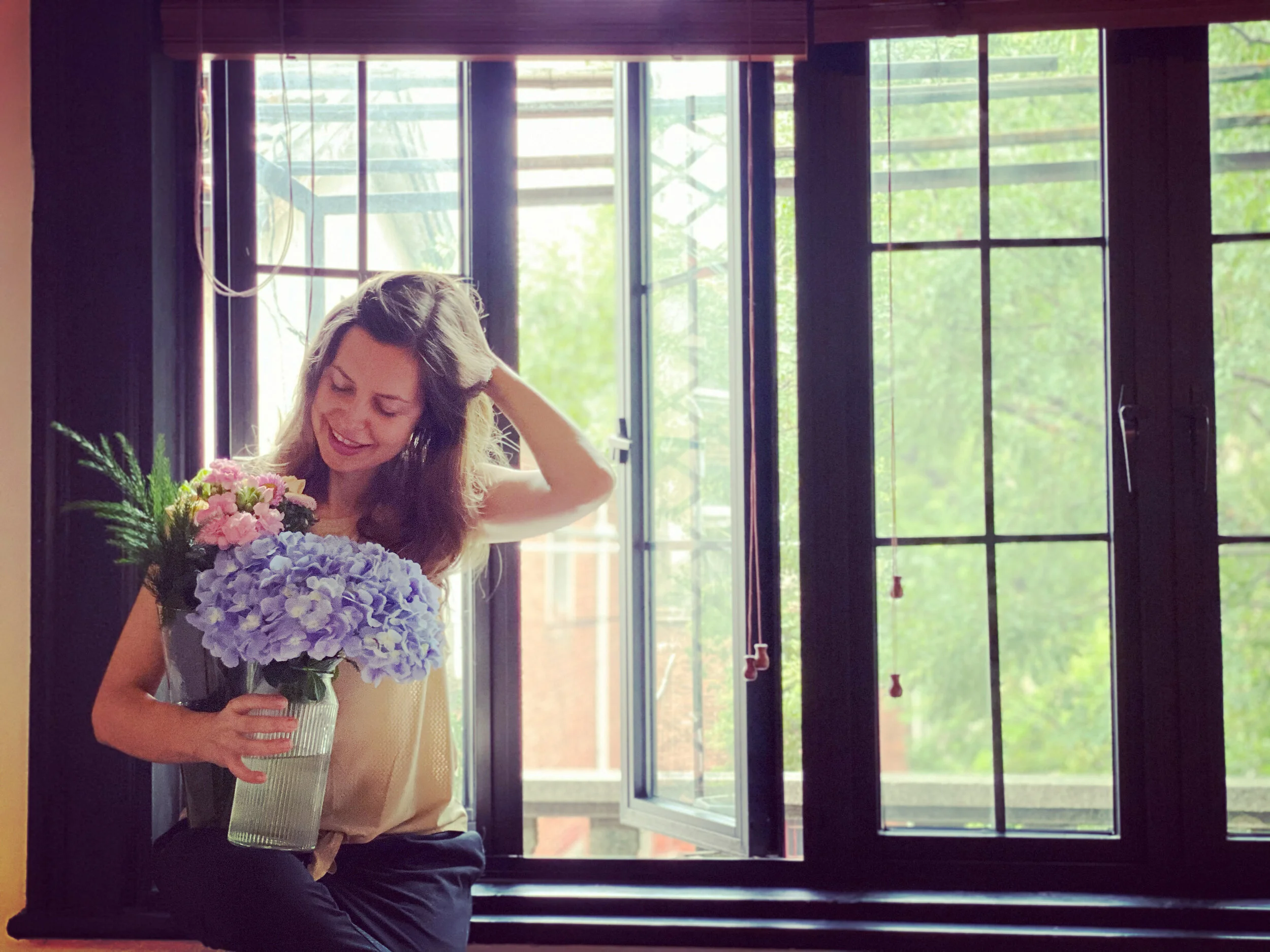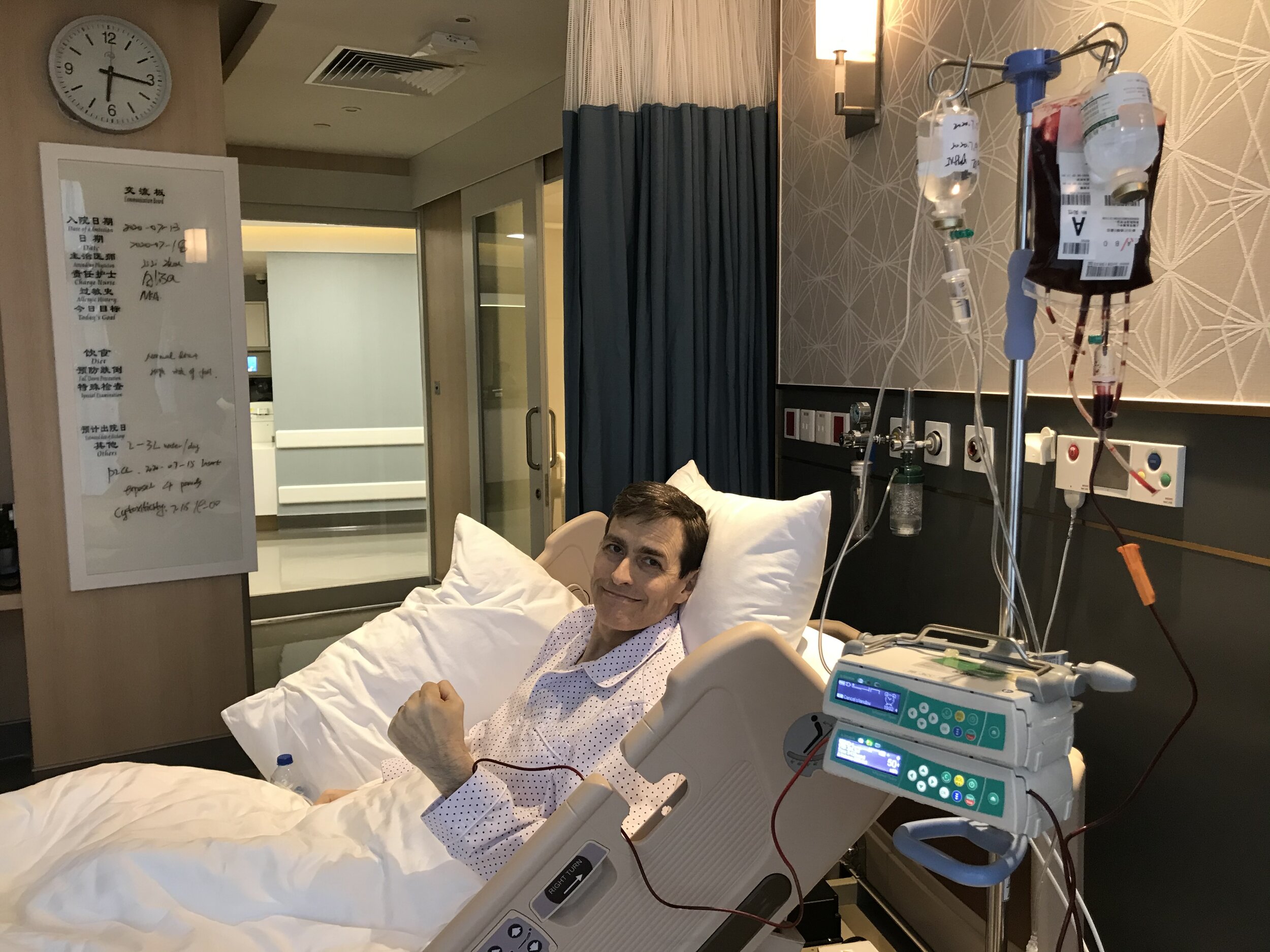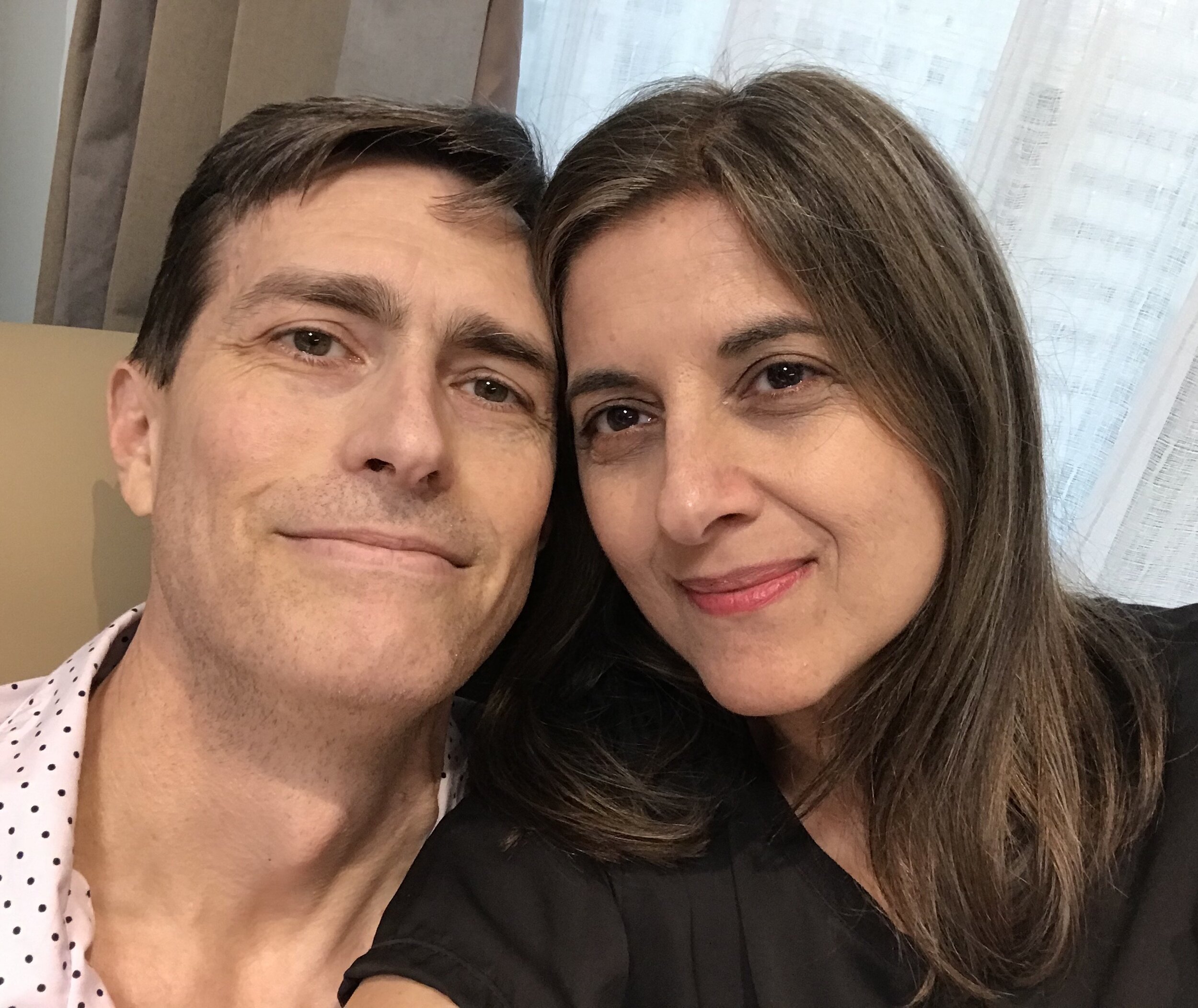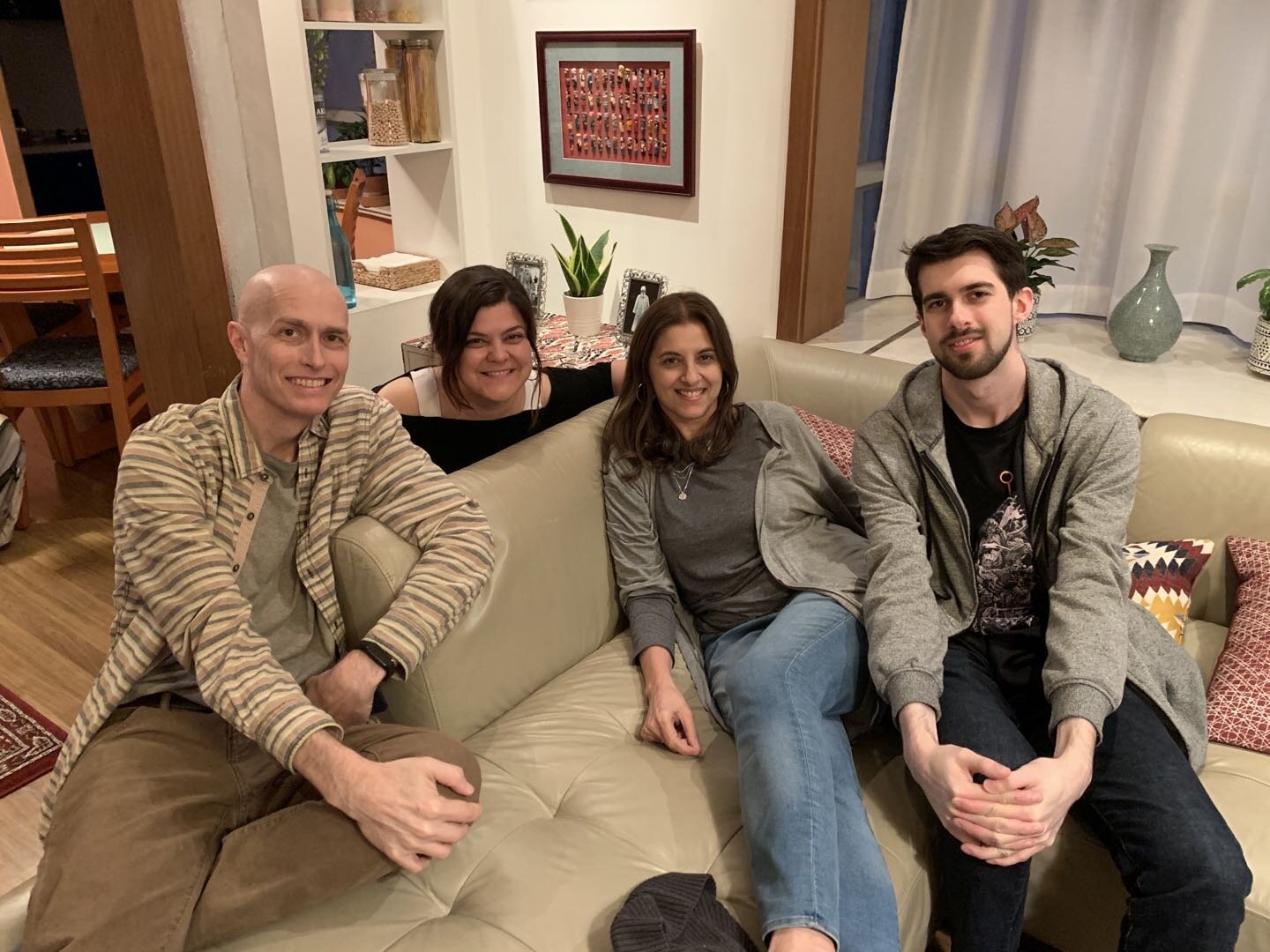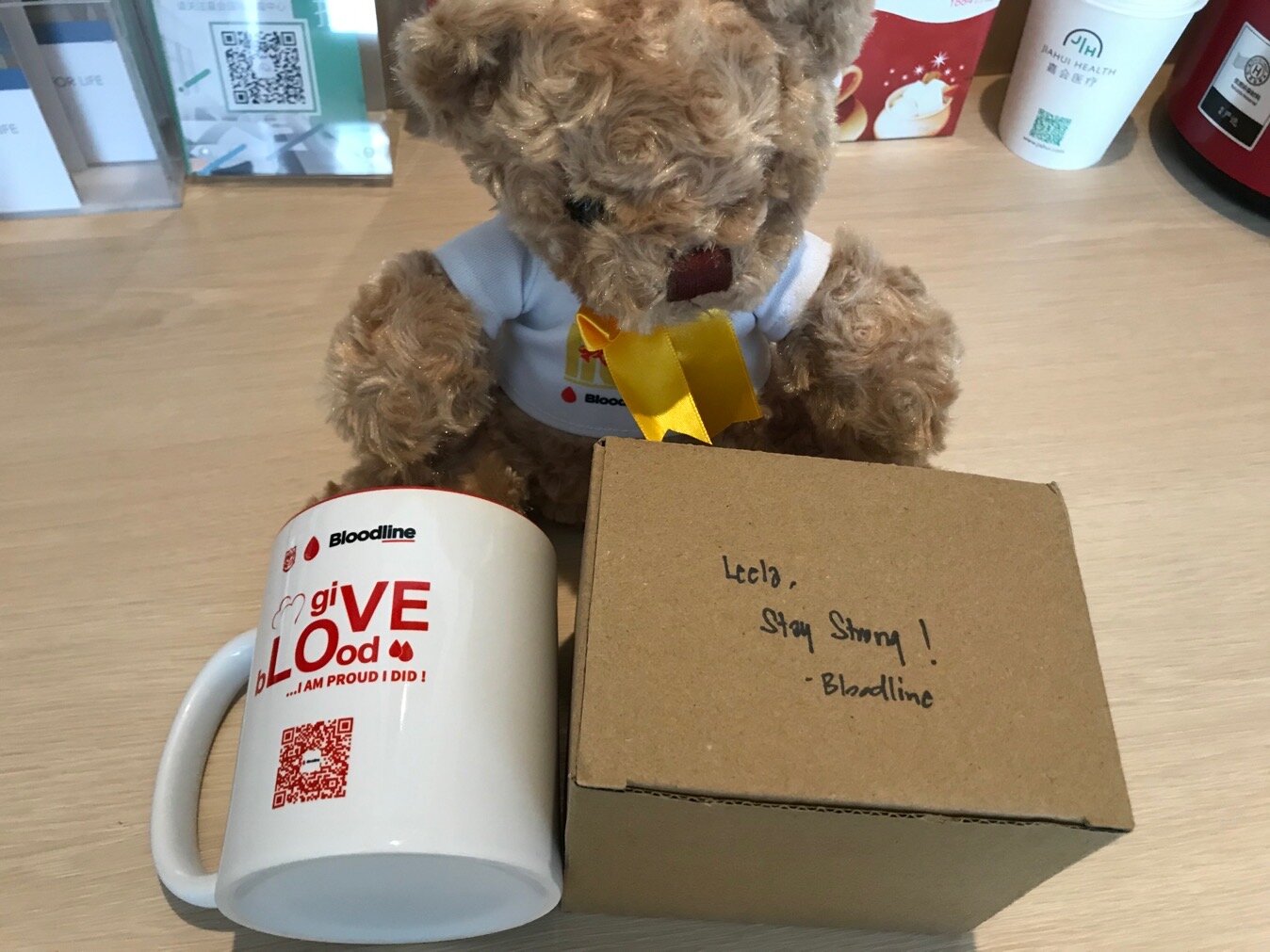Dear readers,
I hope you’re having a beautiful September and are enjoying the cooler but still very pleasant temperatures here in Shanghai. Nowadays, for my brekkie, I’m loving having my warm cuppa of matcha and an avo on homemade sourdough (shout out to Verna who taught Jon and I how to make it ) and curries and soups for dinner and lunch. What’s your go-to food during the Autumn months?
Ok, enough of small talk, let’s buckle up and dive into the topic of today’s article.
“We are like islands in the sea, separate on the surface but connected in the deep.”
- William James
Today’s topic is interconnectedness. Although we are sovereign beings, we live in an interdependent world. And what does this mean? It acknowledges that even though most of us are able to fulfil most of our own needs internally without projecting them on others, we are also here to support each other, and we don’t have to do it all on our own — first, it’s exhausting; second, it can feel very lonely & scary; and third, it robs other people of the gift of generosity. I know what some of you are thinking, “I can do it all on my own, there is no need to ask for help, why should I bother other people and then be bothered by them”. And I’m here to tell you that just because we can do it on our own doesn’t mean we should. The truth is that sometimes we can’t do it alone. Asking, receiving, giving should be part of our circle of life. The relationship we have with ourselves and with others are coexisting interconnected experiences that shape us and cannot be separated.
To illustrate my point, I want to share my recent experience. A week ago, I had a vet appointment for my younger kitten, Luna. She is terrified of going into a cat carrier bag and leaving the house. After several failed attempts of trying to put her into the carrier, I realised I need help. It was a weekday so most of my friends were at work and my partner was traveling… Nevertheless, I decided to reach out to a few people I am not so close with and surprisingly, I found someone who was happy to help very quickly. With the help of that friend, I was able to put her into the carrier within seconds. The kindness made the whole experience less painful for Luna and myself.
So, why are most of us so reluctant to ask for help?
Very often, we play it safe and come up with any kinds of excuses and reasons as to why we shouldn’t ask others for help. This often comes from a place of fear of rejection. I used to put a lot of pressure on myself to do things alone, but now I am much better at asking for help. I realised that when we ask for help, the world becomes our ally. Of course, people will sometimes say “no” and that’s ok, learning how to not take things personally and give others permission to decline is a skill I learned along by practicing.
To further demonstrate the significance of the interdependent world we’re living in and to emphasise the beauty of the four magic words “can you help me?”, I want to share with you dear readers a heartwarming story of how help from strangers saved the life of my dear friend’s husband.
At this time last year my husband David was undergoing chemotherapy. That summer we had gone through a wild race with time to unravel the mystery of his illness. That race involved 5 hospitals, 8 doctors, more specialists, and ever-fluctuating views on the nature of his illness. Finally, the diagnosis came into unmistakeable focus: Stage 4 Lymphoma. Cancer had overtaken 96% of David’s bone marrow.
Several doctors soberly told David that he should go home to seek treatment: he would be in better hands in the United States and there were no available hospital beds in Shanghai. It was only later that we decoded the hidden message: there was no blood in Shanghai. The city blood banks had become completely depleted due to the demands of battling Covid-19 that summer. However, blood cells and platelets were essential for David’s survival. His levels had already plunged too acutely low to survive a plane journey.A guiding star in my life has always been, Be generous in prosperity and thankful in adversity. The inescapable question for me became, Where could we go to dig new wells of gratitude in this adversity? We had up until then consulted only a few friends about David’s situation.
Perhaps it is my cultural habit that keeps me from asking others for help. Americans pride themselves on a spirit of independence. To be fair, without it, I may not have chosen to live in China. However, implicitly this pride can also lead us to regard receiving help from others as a sign of weakness or shame. I knew that saving David’s life would require overcoming these instinctive inheritances. I knew that I needed to shout out loud for help.
Chemotherapy is meant to eradicate cancer cells, but it causes blood and platelet cells to plummet to dangerously low levels. The doctor told David that he needed to “pass through the dark valley” and then get buoyed up by blood infusions until he stabilized.
Shanghai is filled with remarkable medical personnel. However, our story would be incomplete without Dr. Maskay, a surgeon who in his off-hours manages Bloodline, a volunteer organisation that facilitates blood donations. He not only oversaw the blood transfer between the Shanghai Blood Bank and the hospital, but he offered us moral support and inspiration throughout the healing journey. Even stalwart donors had at that time stopped giving blood due to fears of contracting covid.
But the blood came. It did not come in dribs and drabs… but in surges and floods. We were literally inundated with blood donations. Friends, colleagues, and even people we had never met before stepped forward to give.
Did it matter that the donors matched David’s blood type? No. In China blood donations follow WHO protocols, where communities of donors benefit communities of recipients. It is not a one-to-one exchange. The donations allowed David to receive the right type of blood he needed during every phase of chemo he underwent. The sheer number of donations made in David’s name in fact benefited many other patients who had been on long waiting lists.
The lessons of the pandemic are not, in my mind, that we are lone, remote, socially distanced creatures, each destined to carve out our own survival. Our interdependence is indisputable. Our individual paths weave together galaxies of purpose-filled communities.
Over the past year David’s check-ups have indicated that he is clear of cancer. This whole experience has taken us to new places of thankfulness where we had never been before.
One thing that connects every human is that we each have a story to tell so thank you so much, Leela, for sharing from your heart. You are helping so many people by sharing your and David’s story.
You see, dear reader, donating blood is not only great for the people who need it most but it is also very beneficial to you. In line with the research on blood donation, there is a strong correlation between longevity and giving blood regularly. According to Dr. Ann Louise Gittleman (I highly recommend her book - Radical Longevity), donating blood keeps our ferritin levels down. Why is this important? Because high ferritin level is correlated with increased risk of heart disease, diabetes, Alzheimer’s, and Parkinson’s disease. Since the body cannot excrete excess iron, it stores it in the liver, heart, and pancreas, which can lead to organ damage. By giving blood, you lower your iron levels and allow your body to replenish it with fresh blood. So donate some blood and see your energy levels and wellbeing improve.
That’s all from me. Thank you for reading, for being here, and for spreading the word about my work so that my articles can be read by more people.
With love,
Iza
Coaching Psychologist and Relationship Coach
selfgrowthcourses.com thriveinshanghai.com
PS. Our boundary course starts on 4 October, so be sure to sign up by scanning the QR code on the poster below.

